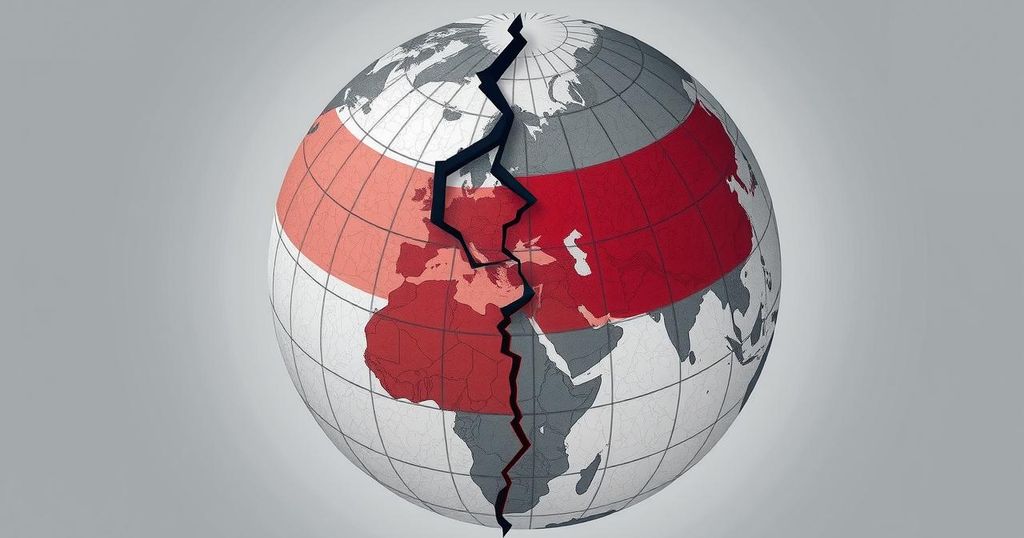Ukraine: Another Afghanistan for Russia’s Global Influence?

- Russia’s war in Ukraine is straining its resources significantly.
- The situation in Syria showcases Russia’s diminishing global influence.
- Armenia’s shift toward the West highlights a loss of trust in Russia.
- NATO’s expansion is a direct counteraction to Russia’s ambitions.
- Central Asia is increasingly aligning with powers like the EU and China.
The Strain of the Ukraine Conflict on Russia
The ongoing conflict in Ukraine has increasingly become a heavy strain on Russia, showcasing how its aspirations to maintain superpower status are rapidly crumbling. When the invasion began in February 2022, many believed Russia would swiftly assert control and expand its influence in Eastern Europe. However, as time goes on, it has become painfully clear that the war has spread Russia’s resources thin, diminishing its grasp on allies and exposing vulnerabilities throughout its vast sphere of influence.
Examining Russia’s Influence in Syria
Russia’s dwindling capacity to uphold commitments to allies has led to significant geopolitical shifts, mirroring the Soviet Union’s misadventures in Afghanistan during the 1980s. One of the most glaring examples today is Syria, which was once considered a crowning achievement for President Putin’s foreign policy efforts. After effectively intervening in 2015 to aid Bashar al-Assad against various opposing factions, Russia seemed to gain a formidable foothold in the Middle East, bolstering its influence through military bases and strategic partnerships. Yet, as internal rebellions gained momentum, Russia’s inability to respond robustly due to the focus on Ukraine led to a dramatic weakening of Assad’s regime, raising questions about Moscow’s leverage.
Armenia’s Frustration and Western Pivot
Moreover, turning our eyes toward Armenia tells a story of betrayal, representing a former Soviet ally that found itself neglected amid rising tensions with Azerbaijan. Despite being part of the Russia-led Collective Security Treaty Organization, Armenia became increasingly frustrated as Russian peacekeepers failed to act as Azerbaijan gained ground in Nagorno-Karabakh. The local leadership sought support but found Moscow preoccupied, and as a result, Armenia pivoted toward Western nations, highlighting a significant breach in trust. This shift illustrates how the conflicts in Ukraine are inflating insecurity not only for Russia but for those who once relied on it for assurance.
Northern Shifts: NATO’s Expansion and Regional Realignments
Across the North, Sweden and Finland have completely abandoned neutrality, spurred by fear of Russian aggression. Historically resistant to joining NATO, both nations found themselves submitting applications in 2022, fundamentally altering the balance of power in Northern Europe. As NATO’s borders expand at Russia’s expense, it starkly demonstrates how Putin’s efforts to reestablish dominance have backfired. Concurrently, in the Central Asian region, countries once considered within Moscow’s realm have begun diversifying alliances, leading to increased investments and partnerships from global powers like the EU and China, which put Russia at a considerable disadvantage. It’s evident that the fallout from the Ukrainian conflict extends far beyond its borders, realigning political landscapes that Russia previously controlled with relative ease.
In reviewing Russia’s escalating conflict in Ukraine, the country is undeniably facing a monumental shift that threatens its global standing—parallels to Afghanistan remain a strong comparison. With a rapidly diminishing influence, lost allies, and rising geopolitical tensions, the prospect for a brighter future for Russia seems bleak. Unless there is a significant recalibration to its tactics and objectives, Ukraine could become what might be considered its Afghanistan, reshaping both the nation’s destiny and the international landscape.







